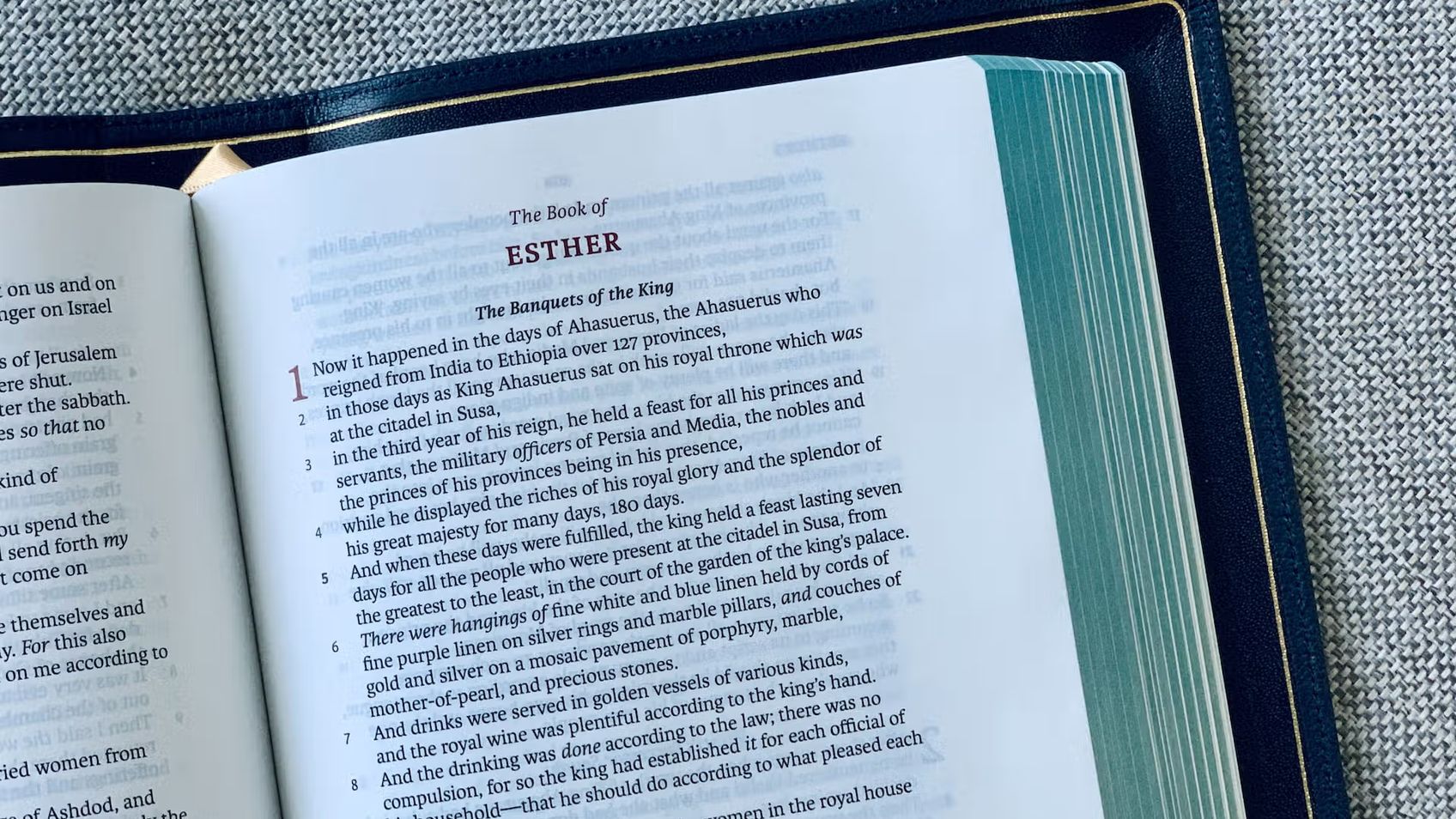Esther 7 - 10

EstherSteve Gregg
Steve Gregg continues his discussion of the book of Esther. He describes how Queen Esther bravely approached the king to save her people, even though it was dangerous due to the prime minister's plot against the Jews. The king granted Esther's request, and Haman was hanged instead. Mordecai became increasingly prominent and holidays continue to be established in the Jewish religion to commemorate events such as the Purim festival.
More from Esther
1 of 2

Esther 1 - 6
Esther
In this talk, Steve Gregg discusses the book of Esther and its historical significance in the Jewish celebration of the Feast of Purim. He highlights
Series by Steve Gregg

The Jewish Roots Movement
"The Jewish Roots Movement" by Steve Gregg is a six-part series that explores Paul's perspective on Torah observance, the distinction between Jewish a

Jeremiah
Steve Gregg teaches verse by verse through a 16-part analysis of the book of Jeremiah, discussing its themes of repentance, faithfulness, and the cons

Gospel of Luke
In this 32-part series, Steve Gregg provides in-depth commentary and historical context on each chapter of the Gospel of Luke, shedding new light on i

Spiritual Warfare
In "Spiritual Warfare," Steve Gregg explores the tactics of the devil, the methods to resist Satan's devices, the concept of demonic possession, and t

3 John
In this series from biblical scholar Steve Gregg, the book of 3 John is examined to illuminate the early developments of church government and leaders

1 Peter
Steve Gregg teaches verse by verse through the book of 1 Peter, delving into themes of salvation, regeneration, Christian motivation, and the role of

Isaiah
A thorough analysis of the book of Isaiah by Steve Gregg, covering various themes like prophecy, eschatology, and the servant songs, providing insight

Galatians
In this six-part series, Steve Gregg provides verse-by-verse commentary on the book of Galatians, discussing topics such as true obedience, faith vers

Bible Book Overviews
Steve Gregg provides comprehensive overviews of books in the Old and New Testaments, highlighting key themes, messages, and prophesies while exploring

Hosea
In Steve Gregg's 3-part series on Hosea, he explores the prophetic messages of restored Israel and the coming Messiah, emphasizing themes of repentanc
More on OpenTheo

Christmas Cranks and Christmas Blessings with Justin Taylor and Collin Hansen
Life and Books and Everything
December 17, 2025
If you are looking for a podcast where three friends talk about whatever they want to talk about and ramble on about sports, books, and grievances, th

Lora Ries: Border Security and Immigration Policy
Knight & Rose Show
December 7, 2025
Wintery Knight and Desert Rose welcome Lora Ries to discuss border security and immigration policy. They explore Biden's policy changes, like ending R

The Heidelberg Catechism with R. Scott Clark
Life and Books and Everything
November 3, 2025
You may not think you need 1,000 pages on the Heidelberg Catechism, but you do! R. Scott Clark, professor at Westminster Seminary California, has writ

Does God Really Need a “Pound of Flesh” to Forgive Sins?
#STRask
January 12, 2026
Questions about how to answer the challenge that God doesn’t need a “pound of flesh” to forgive sins but can simply forgive, and whether the claim in

The Making of the American Mind with Matthew Spalding
Life and Books and Everything
February 2, 2026
The United States is unique in how much attention it pays to its founding, its founders, and its founding documents. Arguably, the most famous and mos

How Do You Justify Calling Jesus the Messiah?
#STRask
December 18, 2025
Questions about how one can justify calling Jesus the Messiah when he didn’t fulfill the Hebrew messianic prophecies, and whether the reason for the v

Why Would Any Rational Person Have to Use Any Religious Book?
#STRask
December 8, 2025
Questions about why any rational person would have to use any religious book, whether apologetics would be redundant if there were actually a good, un

Does Open-Mindedness Require Studying Other Religions Before Becoming a Christian?
#STRask
February 9, 2026
Questions about the claim that if Christians really want to be open-minded, they need to read and study other religions before committing to Christian

The Resurrection Standoff: Licona vs. Ehrman on the Unbelievable Podcast
Risen Jesus
October 22, 2025
This episode is taken from the Unbelievable podcast with Justin Brierly in 2011 when Dr. Bart Ehrman and Dr. Michael Licona address the question: Is t

How Would You Convince Someone That Evil Exists?
#STRask
November 17, 2025
Questions about how to convince someone that evil exists, whether Charlie Kirk’s murder was part of God’s plan, whether that would mean the murderer d

Did God Create Us So He Wouldn’t Be Alone?
#STRask
November 3, 2025
Questions about whether God created us so he wouldn’t be alone, what he had before us, and a comparison between the Muslim view of God and the Christi

What Tools of Reasoning Help You Know What’s True, Right, and Good?
#STRask
December 4, 2025
Question about what tools of reasoning help us determine whether something is true or false, right or wrong, good or bad before bringing Scripture int

Conservatism and Religious Freedom with John Wilsey
Life and Books and Everything
October 27, 2025
What is conservatism? And why does it go hand in hand with religious freedom? How should we think about the American experiment of ordered liberty? Ha

When I Can’t Stop Thinking About Something, Is That God Speaking?
#STRask
December 1, 2025
Questions about whether having a recurring thought is an indication God is speaking to you, what to say to someone who says they sinned because “God t

Is It a Sin to Feel Let Down by God?
#STRask
November 6, 2025
Questions about whether it’s a sin to feel let down by God and whether it would be easier to have a personal relationship with a rock than with a God
